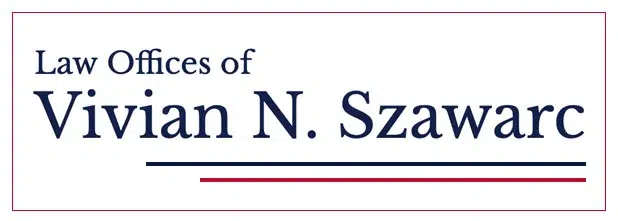In the United States, assault is defined as the act of attempting or threatening to cause physical harm to another person. Assault can be a misdemeanor or a felony, depending on the severity of the threat or attempt.
In general, assault falls into two categories:
- Simple assault: It is a misdemeanor that carries a penalty of up to one year in jail, a fine of up to $2,000, and community service.
- Aggravated assault: It is a felony that carries a penalty of up to five years in prison, a fine of up to $10,000, and community service.
Aggravated assault can be classified into several categories, depending on the severity of the threat or attempt:
- Aggravated assault with violence: It occurs when the assault is committed using physical force.
- Aggravated assault with threat of violence: It occurs when the assault is committed by threatening the victim with violence.
- Aggravated assault with a weapon: It occurs when the assault is committed using a firearm or other dangerous weapon.
In addition to simple assault and aggravated assault, there are other types of assault that can be committed in the United States, such as sexual assault and aggravated assault.
Assault crimes are serious crimes that can have significant consequences for the defendant. If you have been accused of assault, it is important to speak with an attorney to obtain advice on your specific case.
Here are some examples of assault:
- A man threatens to hit a woman with a stick.
- A man pushes a woman to the ground.
- A man punches another man in the face.
- A man points a gun at another person.
It is important to note that assault laws can vary from state to state. If you have been accused of assault, it is important to speak with an attorney for advice on the specific laws that apply to your case.
Difference between assault and battery
Assault and battery are two related crimes that are often confused. The main difference between the two is that assault is an attempt or threat to cause physical harm, while battery is intentional physical contact that is offensive or harmful.
In some states, assault and battery are considered separate crimes. In other states, the two crimes are combined into a single crime.
Defenses for the crime of assault
There are several defenses that can be presented to the crime of assault. Some of the most common defenses include:
- Self-defense: The defendant may claim that he acted in self-defense to protect himself or another person from imminent harm.
- Insult: The defendant may allege that the victim acted in a provocative or threatening manner, which led the defendant to commit the assault.
- Error: The defendant may argue that he did not intend to commit an assault.
- Incompetence: The defendant may argue that he was not competent to understand the nature of the act or that he was not in control of his actions.
It is important to note that not all defenses are applicable to all assault cases. The best course of action for a defendant facing assault charges is to speak with an attorney for advice on her specific case.
What is the crime of assault?
This crime is characterized by its intentional nature, which implies that the accused is aware that he or she may inflict physical or emotional harm, either through the use of lethal weapons (armed assaults) or through the exclusive use of physical force, sometimes called "violent robbery", according to the terminology of some countries.
Why is it important to have legal representation from a California assault attorney?
It is relevant to emphasize that each state in the United States has its own set of laws, which means that certain legal defense strategies may be viable in California but not elsewhere. Lawyers specialized in criminal defense have the ability to provide personalized legal advice, with the aim of securing the release of the accused or the imposition of lighter sentences. This is extremely advantageous so that, in the future, the person sentenced to pay a fine or serve probation can eliminate their criminal record and access new opportunities in their life.
What are the criminal penalties for the crime of assault in California?
The competent authorities carry out a meticulous and effective analysis of each case, in order to impose a sentence in accordance with current legislation. For a person convicted of first-degree assault, the penalty can range from 3 to 9 years in prison, while for second-degree assault, the expected sentence is 2 to 5 years in state prison. If a firearm is used during the assault, an additional 10 years in prison will be added. Additionally, criminal records for prior assault offenses will result in more severe penalties.
A law firm duly accredited by the respective bar associations is qualified to provide a solid legal defense in these cases. It is important to keep in mind that a criminal attorney experienced in the legal aspects surrounding assault cases in California can prove your innocence or negotiate a less burdensome sentence that does not significantly affect your criminal record.
What is the legal nature of the crime of assault?
It is a crime that is perpetrated deliberately, which means that the accused is aware of his ability to inflict both physical and emotional harm, whether through the use of lethal weapons or any other type of instrument (called armed assault). , or even through the exclusive use of physical force in what is known in some countries as "violent robbery."
What are the consequences of being a victim of assault?
The consequences that a person found guilty of assault will face vary depending on the severity of the crime. As an example, simple assault carries a possible fine of up to $1,000 or a sentence of up to 6 months in county jail, and in some cases both penalties may be applied together.
When an assault is perpetrated against a law enforcement officer or public official, and the aggressor is aware or reasonably should be aware of the victim's status as a public servant, the penalty includes a fine of $2,000, a sentence of up to 1 year in the county jail, or even the imposition of both sanctions, that is, fine and imprisonment. These same punitive measures will apply if the assault is carried out against the property of a public transport provider, whether a public transport station or any vehicle used for the transport of passengers, such as a bus, taxi, tram, cable car, trackless trolleybus or other motorized vehicle.
In the case of an assault committed with a deadly weapon or instrument, excluding firearms, the penalty includes a period of confinement of 1 year in the county jail, a sentence of 2, 3, or 4 years in a state prison, or a fine not exceeding $10,000. In some cases, both sanctions, fine and imprisonment, can be applied simultaneously.
What is the maximum penalty for aggravated assault?
In the state of California, the use of a firearm during the commission of an assault may be classified as a felony, depending on the underlying circumstances. This offense carries the possibility of facing a sentence of 2, 3, or 4 years in state prison, a period of detention in county jail ranging from 6 months to 1 year, or a fine not to exceed $10,000. In certain cases, it is feasible that both the fine and the prison sentence may be imposed concurrently.
It is important to note that if the weapon used in the assault is a machine gun or an assault weapon, this crime will always be considered a felony, with sentences that can span periods of 4, 8, or even 12 years in state prison.
In any situation where the crime of assault is committed using a firearm and the victim is a law enforcement officer or firefighter on duty, it will automatically be considered a felony, which carries substantially more penalties and sanctions. severe.
What are the legal defenses for the crime of assault?
For an accusation of assault to be made, circumstances or behavior must be presented that support the actual existence of the crime. Therefore, the prosecutor in charge of the prosecution must demonstrate that the actions of the accused were intended to cause harm to the integrity of another person, that the act was premeditated and voluntary, that the victim perceived a real threat of application of force against his person and that the accused had the actual capacity to cause physical or emotional harm. A solid defense must be able to refute and demonstrate that any of these elements were not met.
If you are facing charges for the crime of assault, our assault attorneys can offer a variety of defense strategies to provide you with the best possible representation. Some of the possible defense options include:
- Argue that you acted in self-defense or in defense of third parties.
- Maintain that the physical force exerted was not intentional, indicating that it was an accident.
- Alleging that the accusation is false or that a precise identification of the aggressor was not made.
- Demonstrate that a deadly weapon or excessive violence that could cause serious injury was not used.
- Arguing that you did not have the ability to apply force against another person.
- Indicate that you had consent to act in the way you did because of a specific activity involving the other person.
Please do not hesitate to contact us if you are facing assault allegations in California. We will find the most appropriate defense strategy for your particular case and help you resolve your legal problems efficiently.






